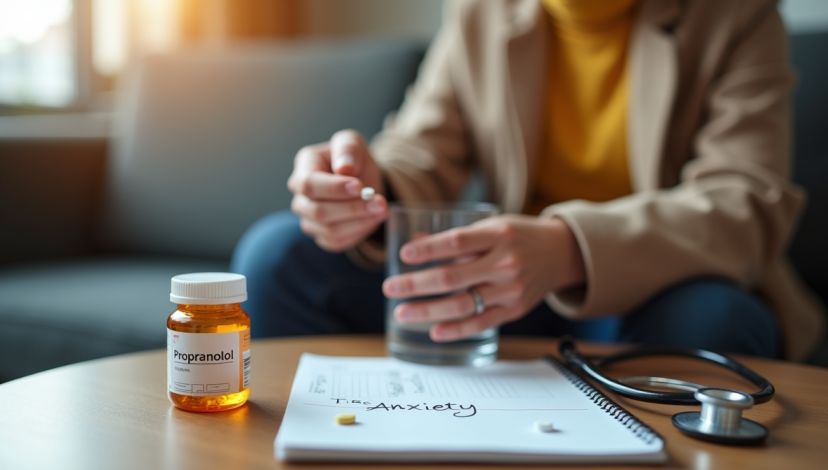Introduction: A New Hope in Treating Mental Health
Depression is one of the severe mental disorders across the world that makes millions of people sick. Although most people have a good response to conventional antidepressants and counseling, some of them end up within a hopeless rut of continuing depression and gloom. This is where ketamine therapy for depression has emerged as a promising new treatment. Initially intended as an anesthetic, ketamine is currently being applied to treat individuals who have been showing resistance towards other treatment modalities.
Ketamine is unlike other common antidepressants. It impacts a brain substance called glutamate, which is responsible in the regulation of mood and communication in the brain. Research indicates that not all patients take too much time before their symptoms become improved because some of them actually improve when given ketamine within hours. It will be a great breakthrough to the treatment-resistant depression patients.
Despite the controversies and side effects associated with the therapy, most mental health professionals believe that the therapy has a lot of potentials of benefiting patients when other therapies have failed. Here, we are going to discuss how it functions, who can use it, its safety, its expense and its future perspective.
Key Points:
- Ketamine aims at relieving depression symptoms in a short period of time.
- It is used mostly when other remedies have proved futile.
- It has to be carried out by professionals.
In What Way Does Ketamine Therapy Treat Depression?
The way ketamine exerts its antidepressant effect is very dissimilar to classical antidepressants such as SSRIs (Selective Serotonin Reuptake Inhibitors). The majority of the antidepressants focus on serotonin, and they are effective in several weeks. Ketamine, however, attacks receptors of the NMDA in the brain and also influences neutral transmission in the brain; the neurotransmitter that takes part in learning, memory as well as regulation of emotions; this is glutamate.
After ketamine is introduced in the bloodstream, it forms new links between nerve cells – a process called synaptogenesis. This is thought to remodel the ability of the brain to modulate mood, and depressive symptoms can improve swiftly. The effect may start already after a few hours of the first treatment.
Ketamine is typically administered in doctors as a low-dose IV infusion or a nasal spray referred to as esketamine. Although IV therapy is mostly used in clinics, the FDA has approved the treatment with esketamine (Spravato) among treatment-resistant depression patients.
And here is the comparison of various types of ketamine therapy in an easy way:
| Form of Ketamine | Method | FDA Approved? | Common Use |
|---|---|---|---|
| IV Infusion | Injected via vein | No | Off-label use in clinics |
| Esketamine (Spravato) | Nasal Spray | Yes | For treatment-resistant depression |
| IM Injection | Muscle injection | No | Rarely used |
Note: Ketamine is not a cure; it is a treatment which has to be combined with therapy and supervision.
Who Can Be A Good Candidate To Ketamine Therapy?
They will typically recommend ketamine therapy as an alternative to treatment-resistant depression, or, in other words, as a depression treatment that has been attempted by a patient, without improvement with two or more drugs. It is also under investigation to treat other conditions of mental illness, such as PTSD, bipolar depression, and anxiety but at the moment, it is most often used to treat depression.
A thorough mental examination and physical examination has to be done on patients prior to the treatment. This will exclude the occurrence of any medical problems or interactions with drugs that would render ketamine unsafe. Individuals having a previous history of substance abuse and psychosis may not get ketamine treatment because of the dissociative nature and certain hallucinations experienced.
Moreover, the candidates need to expect mandatory sessions. Majority of the patients will need 6-8 infusions in a few weeks, followed by maintenance supports according to how the patient responds.
This is a diagram of the differences between an ideal and a non-ideal candidate:
| Ideal Candidate | Non-Ideal Candidate |
|---|---|
| Failed multiple antidepressants | Has history of psychosis |
| No active substance abuse | Active drug or alcohol abuse |
| Willing to attend supervised sessions | Has uncontrolled high blood pressure |
| Physically healthy | Has serious heart or liver issues |
Disclaimer: Before you can attempt ketamine therapy, seek advice of a mental health expert.
Is Ketamine Therapy Safe, and Do They Come with Side Effects?
Similar to other medical procedures, ketamine treatment has both dangers and advantages. Although most patients suggest speedy symptoms relief, it is possible to take into account its side effects.
Certain patients might experience nausea, a sensation of light-headedness, or be out of touch with reality during the treatment. The effects tend to wear off after a few hours of the session. Long-term safety is yet to be determined, but it is being investigated now, which proves that it can be used with the professional oversight.
Regular or uncontrolled administration of ketamine may cause complications like bladder problems, liver or addiction. And it is due to this that ketamine therapy can never be self-administered or recreationally used.
These are some of the frequent and infrequent side effects:
| Common Side Effects | Less Common/Rare Side Effects |
|---|---|
| Dizziness | Increased blood pressure |
| Nausea | Liver function issues |
| Disorientation | Bladder irritation |
| Fatigue | Psychological dependency |
Clinics placed uncompromising processes in order to control patients throughout and post opting for treatment procedures in order to make sure of their safety.
Note: There are many side effects that may be taken care of and reduced.
What is the Cost of Ketamine Therapy, and is it insurance-covered?
Cost is one of the biggest concerns for people considering ketamine therapy for depression. The amount charged differs according to the clinic, the place of location, and the mode of treatment. An IV infusion procedure may cost up to 800 dollars on average. The majority of patients require at least six sessions, and they amount to a couple of thousand dollars.
IV Ketamine is not yet FDA-approved to treat depression, which is unfortunate since most insurance policies are not going to cover such treatment. Nonetheless, these come in a nasal spray form under the brand name of Spravato, which is FDA-approved and could work out with insurance coverage, provided you have such requirements.
This is how, in general, it comes to cost:
| Treatment Type | Average Cost Per Session | Insurance Coverage |
|---|---|---|
| IV Infusion | $400–$800 | Rarely covered |
| Spravato (Esketamine) | $600–$900 | Often partially covered |
| IM Injection | $300–$600 | Not covered |
In certain clinics, there is a plan or some sort of discount after undergoing numerous visits. When you consult the provider, it is better to ask about the choices regarding financing.
What Are The Consequences Of Long-Term Ketamine?
One of the most exciting aspects of ketamine therapy for depression is how quickly it can work. What of the long terms results?
It has been confirmed that a significant number of the patients undergo enduring improvement even following the completion of the initial series of the treatment process. Ketamine is not a lifelong solution, though. The majority of the individuals require a maintenance treatment after every few weeks or months. It depends on the duration of the positive effects it has.
Other patients dedicate this time to therapy as well as lifestyle change and mental health as a whole. When used along with cognitive behavioral therapy (CBT) or other forms of psychotherapy, a likelihood of a long-term positive outcome occurs.
Speaking of which, additional research is required in order to determine the entire long-term effect. Whether there is still uncertainty on whether or not ketamine could influence memory, thinking, or even physical health with long-term use.
The patients can make the best out of the therapy by:
- Make a regular follow-up with a mental health professional
- Have a healthy lifestyle (sport, rest, food)
- Remember not to self-medicate or add on doses without consent
This is to remember: Ketamine therapy is most successful when used in combination with a larger mental health plan.
Conclusion: A promising Alternative to Hard-to-treat depression
Ketamine therapy for depression is bringing hope to many people who have struggled for years without relief. It is gaining medical acceptance as an effective treatment option in depression with its quick effects, a new mechanism of action in the field, and a wide variety of support in the medical fraternity.
But it is not a godsend. The treatment is demanding, professionally controlled, and may need sustained upkeep in most cases. Neither is it suitable to all people, including individuals who have a background of substance abuse or other medical conditions.
To know whether ketamine therapy is appropriate to you, talk to a mental health provider before you commence on it. This new treatment can actually transform lives when applied properly and to the best of the ability of everyone involved.
FAQ’s
Is it possible to treat myself using ketamine at home?
No, ketamine should be given in the clinical environment by a licensed person to observe safety and dose appropriation.
Is ketamine treatment suitable to all depressed persons?
No, it is mostly used in those who have failed to respond to at least two conventional antidepressants. Individuals having the history of psychosis or drug abuse can be poor candidates.
What is the speed with which ketamine acts?
The improvement occurs within hours or a day after the first treatment; still, results vary among individuals.
Does Insurance cover ketamine therapy?
Infusions which are IV are normally not covered. The coverage of Spravato (nasal spray) could occur under strict terms.
What is the length of the effects of ketamine therapy?
The lasting effects may extend to days to a fortnight. Periodic maintenance sessions are frequently required after every few weeks.













